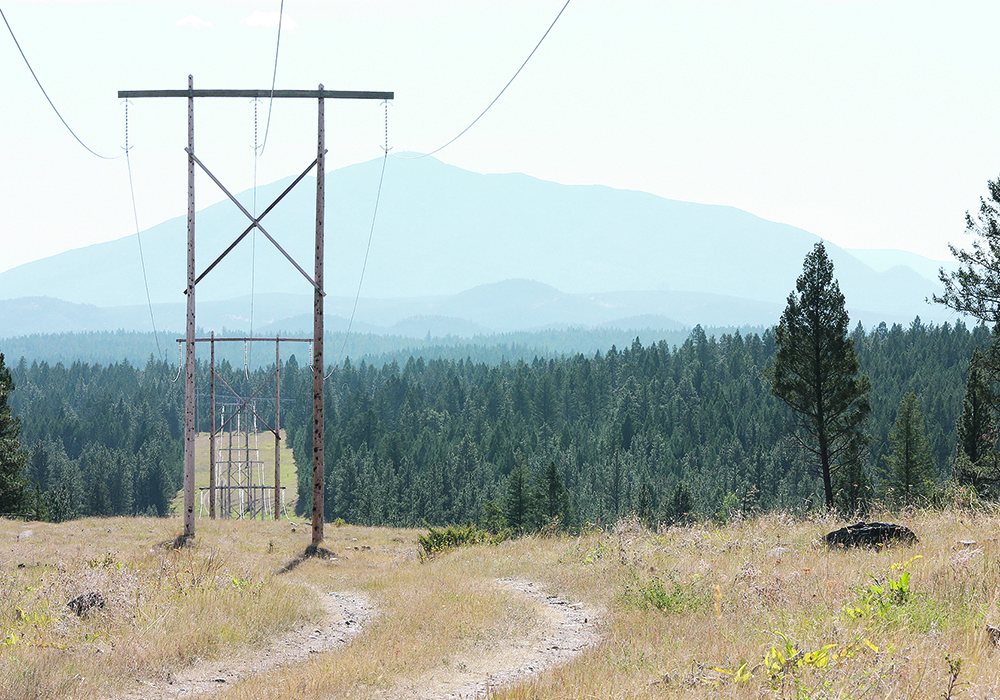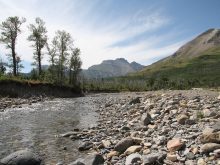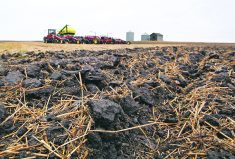Last year was a rough one for the many Albertans who care about the impact of global warming on their children’s future.
Despite opinion polls showing 75 percent of respondents would like to see more renewable energy projects in the community where they live and 65 percent oppose the seven-month ban on regulatory approvals for wind and solar projects, Alberta premier Danielle Smith is taking her ideological crusade against clean electricity to the next level.
Global investment in Alberta’s wind and solar resources has been on a tear since the New Democratic Party introduced the Renewable Electricity Act in 2017. The act resulted in nearly $5 billion invested in Alberta renewable energy projects with the 465 Megawatt Travers Solar project alone providing an investment of approximately $700 million.
Read Also

Invigor Gold variety viewed as threat to condiment mustard
Invigor Gold, the canola-quality mustard developed by BASF, is on a collision course with Canada’s condiment mustard industry. It’s difficult to see how the two can co-exist.
In the face of this outstanding business opportunity, the United Conservative Party implemented an ill-conceived seven-month ban on renewable energy projects and is now invoking its Sovereignty Act to prevent Canada-wide clean electricity regulations from applying in Alberta.
After the moratorium on renewables was announced, the Pembina Institute released a report stating, “public data shows that 118 projects are currently in development and are either waiting for permitting approval or could submit an approval application within the next few months. These projects represent at least $33 billion of investment and more than 24,000 job-years.”
The ban on project approvals is also a setback for rural municipalities that have welcomed the injection of an estimated $28 million in tax revenue and stand to benefit from continued development of renewables in a region of Alberta where conventional oil revenues are declining rapidly.
One of Alberta’s largest power generators, TransAlta, just announced it plans to invest $3.5 billion in renewables by 2028, but Smith may have ensured that none of that investment will come to Alberta.
“We have significant growth opportunities across Canada, the United States and Australia with a focus on renewable and storage power solutions for large customers,” said John Kousinioris, president and chief executive officer of TransAlta.
The future of energy development in southern Alberta is in renewables, but Smith is creating more uncertainty by invoking the Alberta Sovereignty Act and introducing legislation that blocks federal clean electricity regulations.
The province now has an expensive plan to create a provincial power company that scoops up natural gas plants to prevent them from being shuttered when utility companies decide the economics of the asset are in decline or there are better technology options available.
This sounds like a great business for the Alberta government to invest in. It’s not like that money could be better spent on health care, education or job creation in growth industries like information technology, energy efficiency, artificial intelligence and renewable energy.
Placing a costly bet on an industry that the International Energy Agency predicts will peak this decade is the right call for Smith and her gang of pension-grabbing Alberta sovereigntists.
An ongoing misinformation campaign against renewable energy, funded by the Alberta taxpayer, warns that the endgame of clean electricity is to replace all natural gas plants with wind and solar. In reality, the goal is to burn less fossil fuel when renewable sources and grid batteries are generating.
When gas turbines are needed, the CO2 emissions will be abated by Smith’s promised carbon-capture technology.
Transitioning to clean electricity in Canada by 2035 is possible. If a clear goal is set, then utilities will invest accordingly. Smith’s opposition to renewables isn’t popular in Alberta and it sends the wrong message to the rest of Canada, misinformation campaigns notwithstanding.
Most Albertans understand the consequences of climate change and support a transition to clean electricity. Unfortunately, they overlooked Smith’s radical views on the matter when they cast their votes last spring.
Robert Miller is a retired systems engineer, formerly with General Dynamics Canada, who volunteers with the Calgary Climate Hub and writes on behalf of Eco-Elders for Climate Action. He lives in Calgary.



![Protesters crowd a street carrying signs that read, "Global warming real. In other news, water is wet," and "Stop denying the [blue painted pic of the Earth] is dying."](https://static.producer.com/wp-content/uploads/2025/07/29145152/158171_web1_2019-10-18T222818Z_1221762151_RC14C26A65A0_RTRMADP_3_CLIMATE-CHANGE-THUNBERG-1200-220x165.jpg)











